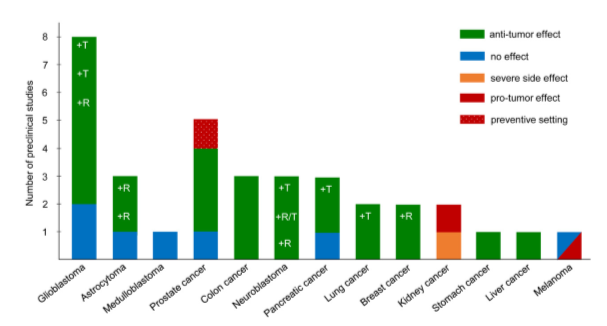Malnutrition is cancer is a prevalent occurrence, where the tumor itself, due to its demand for energy can lead to patients losing weight including muscle mass. Combined with effects of therapy on appetite, upto 20% of the death in cancer is related to malnutrition and not directly to cancer itself[1]. Other research shows upto 85% of those with cancer have nutritional deficiencies. Nutrient depletion can happen as part of chemotherapy.
A few years ago (maybe 10 years ago), I had a phone call from a distressed sister of a man who had Stage IV Cancer. He had been told by an alternative health practitioner to go on a 40 day fast to starve the cancer. He was only allowed to drink juice and water. He supposedly had lost more than 20kg in few weeks of the fast already, now being very underweight.
My shock with that advice given was understandable. I gave advise then on not having a diet that had a lot of processed food, was low in sugar and high in vegetables and with good amounts of protein, especially plant protein. In the recent years, the role of a modified ketogenic diet to starve some forms of cancer has gained popularity. Can this work?
What Is A Ketogenic Diet?
A ketogenic diet is a high fat, high protein diet with low carbohydrate. By restricting carbohydrate, it is thought that the body is forced into ketosis – a process that forms ketone bodies. The ketone bodies produced become an alternative source of energy instead of carbohydrate.
Since cancer cells primarily use glucose as a source of energy and cancer cells have more insulin receptors, a diet that is high in carbohydrate can end up feeding the cancer cells.
It seems that cancer cells cannot metabolise ketone bodies due to a mitochondrial dysfunction and also have a down regulation of their enzymes levels that can help utilize ketones. Thus, theoretically, a ketogenic diet can starve cancer cells while the rest of the body adapts to a ketone dependent system so that the rest of the body can continue to function normally.
Current Research Regarding Ketogenic Diet In Management of Cancer
Weber et al (2018) summaries the available data to date in this impact of ketogenic diet on cancer.[2]

Figure 1: Preclinical evidence indicating the effect of a KD on tumor growth and progression. The bar chart shows the number of preclinical studies, which investigated the effect of a KD on different types of cancer. Colors of the bars represent the result of each study as indicated in the color key. Studies on KD and cancer were collected by a literature search covering through the end of 2017. R indicates studies with a calorie-restricted KD; T indicates use of a KD as an adjuvant therapy to classic therapy.
While these studies have been limited in duration and number of participants in each study, they do show a promise of potential role of ketogenic diet in cancer management. A larger randomized control trial is needed.
On that note, recently, results of a randomized control trial of 45 women greater than 19 years of age was published recently[3]. In this trial, women with Body Mass Index of > 18.5kg/m2 was placed into two groups. Group one (1) had a modified ketogenic diet with 75%:20%:5% fat to protein to carbohydrate ratio. Group two (2) had an American Cancer Society diet: moderate protein, high fibre and low fat diet.
They were measured for their body composition, the fasting serum insulin, insulin growth factor 1 and beta-hydroxybutyrate. Insulin promotes uptake of glucose by cancer and normal cells; insulin growth factor 1 helps proliferate cancer cells. Raised beta-hydroxybutyrate is thought to provide a negative environment for cancer proliferation. It is thought at reduction in insulin and insulin growth factor 1 can tentatively prevent proliferation of the cancer cells. After 12 weeks, those on the modified ketogenic diet compared to American Cancer Society diet had more body fat, maintained muscle mass and had raise beta-hydroxybutyrate. The insulin growth factor-1 were lower too. The study did not show if there had been disruption in cancer growth and proliferation as such but that the contributors of cancer growth and proliferation can be changed by a modified ketogenic diet.
What does this mean? So can we starve cancer cells? There are some research that supports the use of ketogenic diet to starve cancer cells but these are low in number. My recommendation is that the diet for cancer is whole food diet that has no preservatives, is high in healthy fat with good protein sources (mostly vegetable proteins), low in refined carbohydrate and full of fruit and vegetables.
[1] DeWys WD, Begg C, Lavin PT, et al. Prognostic effect of weight loss prior to chemotherapy in cancer patients. Eastern Cooperative Oncology Group. Am J Med. 1980;69:491-497.
[2] Weber et al: Ketogenic Diet In Cancer Therapy. www.ageing-us.com. Ageing 2018 Feb (10):2: 164 – 165. https://www.ncbi.nlm.nih.gov/pmc/articles/PMC5842847/
[3] Cohen et at (2018) A Ketogenic Diet Reduces Central Obesity and Serum Insulin in Women with Ovarian or Endometrial Cancer: Journal of Nutrition. P 1253 - 1260
